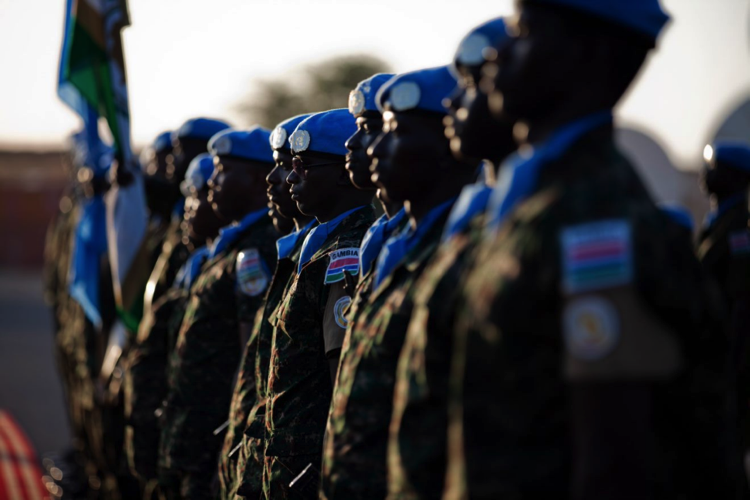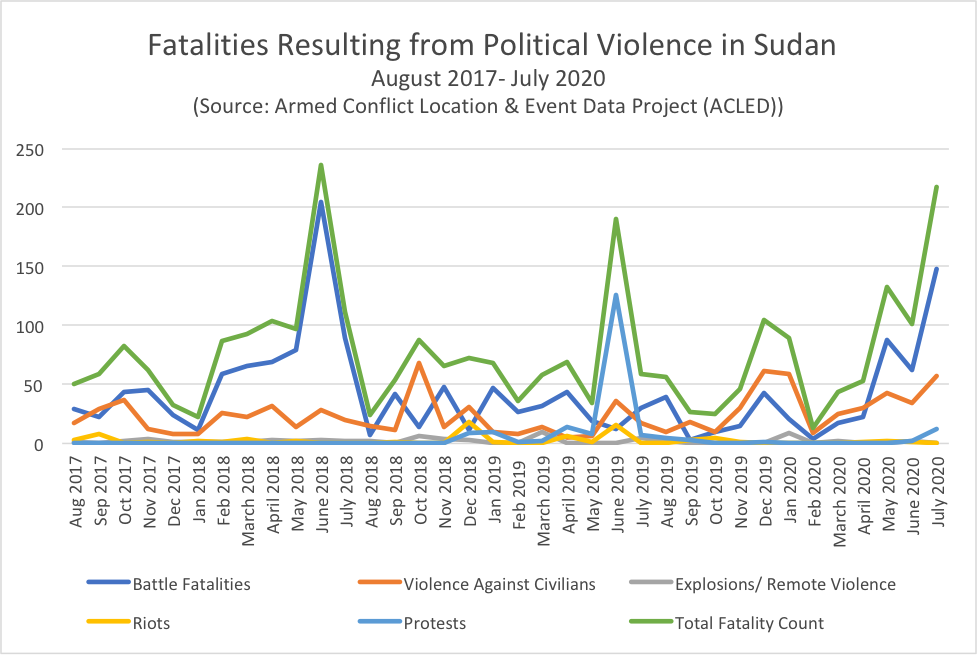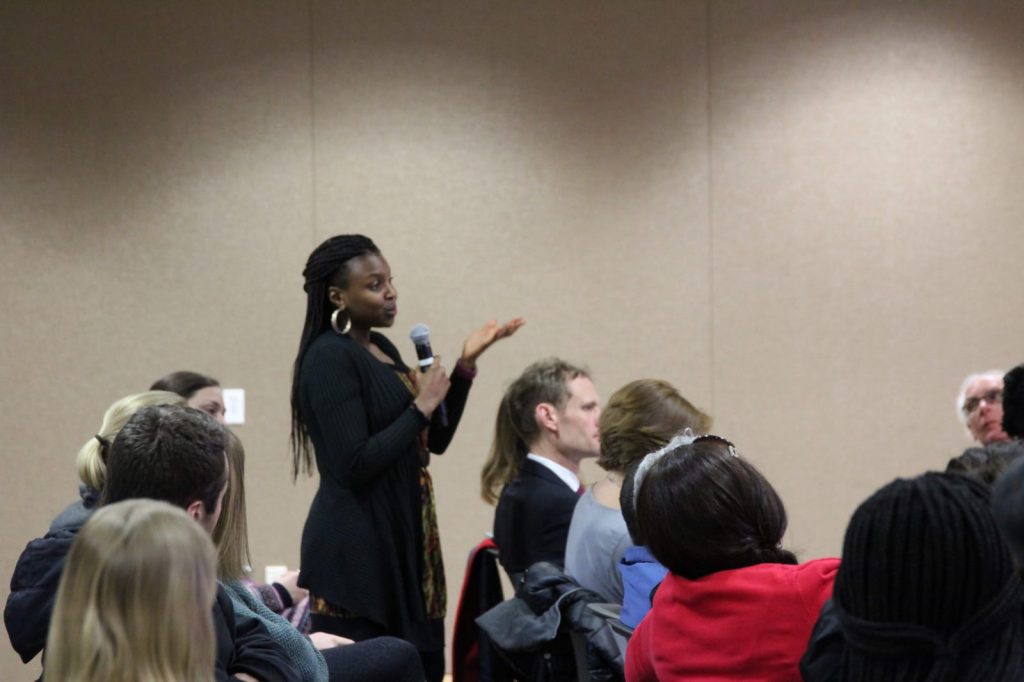Protection of Civilians After UNAMID? Rising Violence Amid the Mission’s Looming Exit

Andrew Karl, Research Fellow, Security & Intelligence Policy Lab
akarl@africacfsp.org
Sudan’s Darfur states have seen a renewed escalation of intercommunal violence in the months of May-July 2020, representing the conflict’s deadliest three-month period since June 2017. While this intensification of hostilities reflects a pattern of violence observed in recent years, the looming departure of the UNAMID peacekeeping mission has heightened concerns over the ongoing state of insecurity and Protection of Civilian needs in western Sudan.
Rising Violence Amid the Mission’s Looming Exit
In recent months, the Darfur region of western Sudan has seen growing civil unrest and a renewed escalation of intercommunal violence. Tens of thousands of protesters from across Sudan took to the streets during the month of July to voice grievances over chronic insecurity, a thwarted political transition, and rising inflation.1Radio Dabanga, “Sit-Ins against Insecurity Spread from Darfur to Rest of Sudan,” Radio Dabanga, July 9, 2020, https://www.dabangasudan.org/en/all-news/article/sit-ins-against-insecurity-spread-from-darfur-to-rest-of-sudan; Al Jazeera English, “One Killed in Sudan as Thousands Rally for Faster Reform,” July 1, 2020, https://www.aljazeera.com/news/2020/07/01/one-killed-in-sudan-as-thousands-rally-for-faster-reform/. Meanwhile, frequent episodes of violence underscore the insecurity still felt within Darfur. Officials declared a state of emergency in North Darfur on July 13 after an Arab militia, reported to be at least 100 strong, attacked villagers at the Fata Bornu IDP camp.2Khaled Abdelaziz, “Sudan Declares Emergency in North Darfur State after Violence,” Reuters, July 14, 2020, https://www.reuters.com/article/us-sudan-violence/sudan-declares-emergency-in-north-darfur-state-after-violence-idUSKCN24E2T5; Declan Walsh, “The Dictator Who Waged War on Darfur Is Gone, but the Killing Goes On,” The New York Times, July 30, 2020, sec. World, https://www.nytimes.com/2020/07/30/world/middleeast/darfur-sudan.html. Later on July 25, hundreds of unidentified Arab militia members launched an assault on the town of Masteri that left 61 dead and 88 wounded, in addition to several villages razed and markets looted.3 Zeinab Mohammed Salih, “In Darfur, Civilians Pay Price in New Wave of Deadly Violence,” www.aljazeera.com, August 9, 2020, https://www.aljazeera.com/news/2020/08/09/in-darfur-civilians-pay-price-in-new-wave-of-deadly-violence/. In response to the growing insecurity in the region, more than 2,500 people have fled into neighboring Chad, while UN estimates suggest the most recent wave of violence has impacted an additional 20,000 people living in Western Darfur.4 UN News, “Violence in Sudan’s Western Darfur Forces 2,500 into Chad: UN Refugee Agency,” UN News, August 11, 2020, https://news.un.org/en/story/2020/08/1069962. Further, incidences of rape and sexual violence have seen a 50% increase in parts of Darfur according to reports from The Strategic Initiative for Women in the Horn of Africa.5 Radio Dabanga, “Rape of Displaced Women in North Darfur on the Rise,” Radio Dabanga, June 22, 2020, https://www.dabangasudan.org/en/all-news/article/rape-of-displaced-women-in-north-darfur-on-the-rise.
Amid the ongoing escalation of violence and heightened insecurity, the draw-down and exit of the African Union-United Nations Hybrid Operation in Darfur (UNAMID) looms large. In June, the Security Council voted unanimously to move forward with plans to close the mission and to replace it with a civilian-based political mission to assist with Sudan’s democratic transition.6 UN News, “Security Council Extends Peacekeeping Mission in Darfur, Forges New Presence in Sudan,” UN News, June 4, 2020, https://news.un.org/en/story/2020/06/1065612. Operating under a Chapter VI mandate, the new mission, the United Nations Integrated Transition Assistance Mission in Sudan (UNITAMS), can support the maintenance, monitoring, and building of peace, but is not authorized to use force for the prevention of resurgent violence.7Sudan Tribune, “Hamdok Demands UN Operation to Achieve Transition in Sudan,” February 9, 2020, https://sudantribune.com/spip.php?article68957. Without a Chapter VII peacekeeping mandate for protection of civilians, many fear the mission’s exit will only exacerbate the current state of insecurity in the region. In May, nearly one hundred civil society leaders, human rights organizations, and rebel groups alike voiced opposition to UNAMID’s departure, pointing to the ongoing violence against civilians as evidence of the continued need for uniformed peacekeepers.8 Ahmed H. Adam, “Sudan Needs a UN Peacekeeping Mission,” www.aljazeera.com, May 16, 2020, https://www.aljazeera.com/opinions/2020/5/16/sudan-needs-a-un-peacekeeping-mission/; Sudan Tribune, “Armed Group Calls to Maintain Darfur Peacekeeping Mission – Sudan Tribune: Plural News and Views on Sudan,” sudantribune.com, May 1, 2020, https://sudantribune.com/spip.php?article69279=.
Rising Violence
During the month of July 2020, the Armed Conflict Location & Event Data Project (ACLED) identified 217 fatalities in Sudan resulting from political violence, making it the deadliest month in more than two years of low-level armed conflict.9 Raleigh, Clionadh, Andrew Linke, Håvard Hegre and Joakim Karlsen. 2010. Introducing ACLED – Armed Conflict Location and Event Data. Journal of Peace Research 47(5), 651-660. Similarly, the 451 fatalities observed in the months of May-July represent the most violent three-month period since June 2017.10Ibid. Following the attack on the Fata Borno IDP camp, a statement from UNAMID attributed the cycle of violence in Darfur to the farming season, noting that the peacekeeping mission had “witnessed this occurrence in the past.”11United Nations–African Union Mission in Darfur, “UNAMID Is Deeply Concerned About Violent Incidents in Kutum Town and Fata Borno IDPS Camp in North Darfur,” July 14, 2020, https://unamid.unmissions.org/unamid-deeply-concerned-about-violent-incidents-kutum-town-and-fata-borno-idps-camp-north-darfur. Indeed, corresponding with the June-July planting season for millet and sorghum, the months of May-July have been marked by a sharp escalation of violence in recent years12 Food and Agricultural Organization, “GIEWS Country Brief on Sudan,” www.fao.org (Global Information and Early Warning System, April 22, 2020), http://www.fao.org/giews/countrybrief/country.jsp?code=SDN.. Since 2017, these months have repeatedly seen the worst violence of the year in Sudan, while August and September were marked by sharp declines in violence.13Raleigh, Clionadh, Andrew Linke, Håvard Hegre and Joakim Karlsen. 2010. Introducing ACLED – Armed Conflict Location and Event Data. Journal of Peace Research 47(5), 651-660.
The ongoing escalation of violence in Darfur follows, in part, from unresolved land disputes, where displaced farmers have attempted to return to their previous land but are often met with violence by the Arab pastoralists who have since settled on the land. As UNAMID’s draw-down and impending exit have led to a reduction in humanitarian aid, people are leaving IDP camps in greater numbers to return to their farms or to seek out alternate livelihoods. Additionally, movement restrictions imposed due to Covid-19 have reduced opportunities for community engagement and patrols, potentially undermining the impact of the peacekeeping mission.14Meressa K. Dessu, “Darfur’s Conflict Could Return to Square One,” ISS Africa, July 22, 2020, https://issafrica.org/iss-today/darfurs-conflict-could-return-to-square-one. Whether the latest escalation of violence will soon subside, following the pattern of recent years, remains to be seen. Clearer is the ongoing need for protection of civilian measures.

UNAMID & UNITAMS
UNAMID’s closure has been on the Security Council agenda since 2017. Originally slated to close in 2019, the peacekeeping mission’s mandate was extended to October 2020 to support the political transition in Khartoum, and then extended again to December 2020 after coronavirus travel restrictions and a suspension of peacekeeping troop rotations delayed UNAMID’s exit.15UN Meeting Coverage & Press Releases, “Security Council Extends Mandate of African Union-United Nations Operation in Darfur for One Year, Unanimously Adopting Resolution 2495 (2019) | Meetings Coverage and Press Releases,” www.un.org, October 31, 2020, https://www.un.org/press/en/2019/sc14007.doc.htm; UN News, “UN ‘Fully Mobilized’ to Support the Sudanese People, Security Council Hears,” UN News, April 24, 2020, https://news.un.org/en/story/2020/04/1062602. Now into the fourth year of preparations for the mission’s departure, the process has gained a momentum that is likely to conclude with the mission’s complete exit by the year’s end or, at the latest, within the first months of 2021. While broad support has been offered for a special political mission to succeed UNAMID, there currently appears to be insufficient political will for a continued uniformed presence in Sudan.16Daniel Forti, “UNAMID’s Transition Continues Through Uncharted Waters,” IPI Global Observatory, April 15, 2020, https://theglobalobservatory.org/2020/04/unamids-transition-continues-through-uncharted-waters/. Prime Minister Abdalla Hamdock outlined Sudanese priorities for a follow-up mission in two letters to the UN Secretary General in January and March 2020. In the first letter, Hamdock made explicit requests for protection of civilians, police advisors, and human rights monitoring carried out under a Chapter VI PSO mandate; in the second letter – which was the product of consultations with military counterparts on the Sovereign Council and the Council of Ministers – these appeals were conspicuously absent.17Permanent Mission of the Sudan to the President of the UN Security Council, January 28, 2020, www.securitycouncilreport.org/un-documents/document/s-2020-77.php; Permanent Mission of the Sudan to the President of the UN Security Council, March 20, 2020, www.securitycouncilreport.org/un-documents/document/s-2020-221.php Likewise, in a March 2020 report, the UN and AU recommended against the continued presence of uniformed contingents, instead favoring an enhanced role for military and police advisors.18Ralph Mamiya, “Protecting Civilians After UNAMID: Options for a Follow-on Mission in Sudan,” IPI Global Observatory, April 22, 2020, https://theglobalobservatory.org/2020/04/protecting-civilians-after-unamid-options-for-a-follow-on-mission-in-sudan/.
Scheduled to begin operations by January 2021, United Nations Integrated Transition Assistance Mission in Sudan (UNITAMS) is authorized to “to assist, advise and support” Government of Sudan-led protection efforts.19UN Meeting Coverage & Press Releases, “Security Council Extends Mandate of African Union-United Nations Operation in Darfur for One Year, Unanimously Adopting Resolution 2495 (2019) | Meetings Coverage and Press Releases,” www.un.org, October 31, 2020, https://www.un.org/press/en/2019/sc14007.doc.htm; UN News, “UN ‘Fully Mobilized’ to Support the Sudanese People, Security Council Hears,” UN News, April 24, 2020, https://news.un.org/en/story/2020/04/1062602. Under that authority, UNITAMS can fulfill several critical civilian protection roles, including conflict monitoring and crisis mediation. A less-militarized approach to protection of civilians, these roles reflect the growing consensus around the importance of field-based dialogue and engagement, as well as an understanding that UNAMID’s protection “doesn’t come from the troops’ weapons (which they rarely use) but rather from their standing as the eyes and ears of the international community.”20Ralph Mamiya, “Protecting Civilians After UNAMID: Options for a Follow-on Mission in Sudan,” IPI Global Observatory, April 22, 2020, https://theglobalobservatory.org/2020/04/protecting-civilians-after-unamid-options-for-a-follow-on-mission-in-sudan/.
Security Sector Abuses
Without the continued presence of uniformed peacekeepers, the transitional government in Khartoum will need to adopt the primary responsibility for addressing the chronic insecurity in Sudan’s Darfur states. However, the relationship between the communities of Darfur and Sudan’s police and security forces is marked by severe distrust following decades of abuse. Following the assaults on the Fata Borno IDP camp, locals claim that security forces stood aside allowing the attack to occur. Internal UN reports explicitly note the troops’ failure to intervene.21 Declan Walsh, “The Dictator Who Waged War on Darfur Is Gone, but the Killing Goes On,” The New York Times, July 30, 2020, sec. World, https://www.nytimes.com/2020/07/30/world/middleeast/darfur-sudan.html.
Likewise, locals accused high-ranking Rapid Support Forces (RSF) officers of being complicit in the attacks on Masteri in late July.22 Zeinab Mohammed Salih, “In Darfur, Civilians Pay Price in New Wave of Deadly Violence,” www.aljazeera.com, August 9, 2020, https://www.aljazeera.com/news/2020/08/09/in-darfur-civilians-pay-price-in-new-wave-of-deadly-violence/.
Created by former President al-Bashir in response to rebel movements in Darfur, the RSF is the Sudanese government’s main paramilitary group, composed largely of the former “Janjaweed” militia that had carried out al-Bashir’s decades-long campaign of ethnic cleansing in Darfur.23Jérôme Tubiana, Clotilde Warin, and Mahamat Mangare, “Diaspora in Despair: Darfurian Mobility at a Time of International Disengagement,” 2020, http://www.smallarmssurveysudan.org/fileadmin/docs/reports/HSBA-Report-Darfur-mobility.pdf. Since its establishment, RSF forces have been linked to multiple episodes of extrajudicial violence, including a bloody crackdown on a peaceful sit-in, which killed more than 100 protesters in June 2019.24 Hilary Matfess, “The Rapid Support Forces and the Escalation of Violence in Sudan,” ACLED, July 3, 2019, https://acleddata.com/2019/07/02/the-rapid-support-forces-and-the-escalation-of-violence-in-sudan/.
Human rights groups allege that the RSF has continued to engage in war crimes and other serious human rights violations, documenting evidence that the RSF damaged or destroyed at least 45 villages in central Darfur between July 2018 and 2019, in addition to other abuses including: extrajudicial killings, sexual violence, systematic looting, and forced displacement.25Amnesty International, “Sudan: Fresh Evidence of Government-Sponsored Crimes in Darfur Shows Drawdown of Peacekeepers Premature and Reckless,” Amnesty.org, June 11, 2019, https://www.amnesty.org/en/latest/news/2019/06/sudan-fresh-evidence-of-government-sponsored-crimes-in-darfur-shows-drawdown-of-peacekeepers-premature-and-reckless/.
As UNAMID has scaled down its presence in Darfur, the RSF moved to occupy the mission’s recently vacated outposts and bases.26Colum Lynch, “Document of The Week: Sudan’s Paramilitaries Are Seizing Abandoned U.N. Outposts in Darfur,” Foreign Policy, June 7, 2020, https://foreignpolicy.com/2019/06/07/document-of-the-week-sudans-paramilitaries-are-seizing-abandoned-u-n-outposts-in-darfur/.
Recommendations:
In response to the chronic insecurity and ongoing escalation of violence in Darfur, Prime Minister Hamdock and the Sovereignty Council of Sudan should take the following actions:
- Reassess the state of insecurity and protection of civilians needs in Darfur at the close of UNAMID’s March-July reporting period. If the current escalation of violence continues or critically worsens, Prime Minister Hamdock should be prepared to request an extension to the current mandate to allow for a more gradual withdrawal by the mission, as circumstances warrant. A short, clearly defined extension of the UNAMID’s mandate could carry an additional benefit of enabling a smoother transition between the two missions.
- Take ownership of Protection of Civilians activities through a rigorous commitment to conflict prevention and mitigation, promotion of intercommunal dialogue and engagement, peacebuilding, and reconciliation, as well as efforts to foster a protective environment such as measures to strengthen rule-of-law and human rights.
- Pursue sweeping security-sector reforms to fundamentally reorient the culture and operational capacities of the Sudanese Armed Forces, the Sudanese Police Force, and paramilitary groups like the RSF. Take full advantage of the UNITAMS advisory and capacity building and make good on Prime Minister Hamdock’s promise to build a new army.27Prime Minister Abdalla Hamdok interviewed by the Atlantic Council, “Navigating Sudan’s Transition: A Conversation with Prime Minister Abdalla Hamdok,” YouTube Video, December 5, 2019, https://www.youtube.com/watch?v=46BHYKp2AyE&feature=youtu.be&t=3026&ab_channel=AtlanticCouncil


